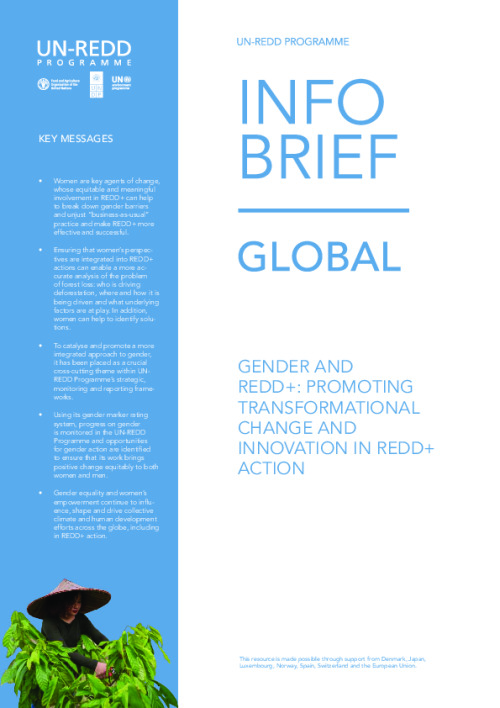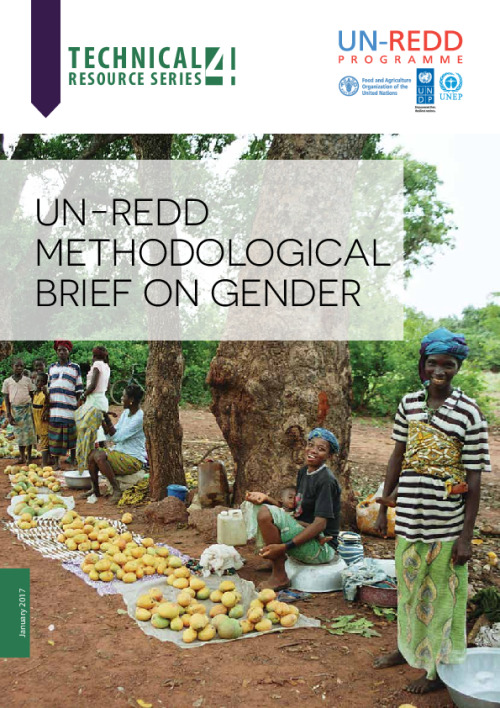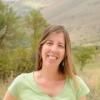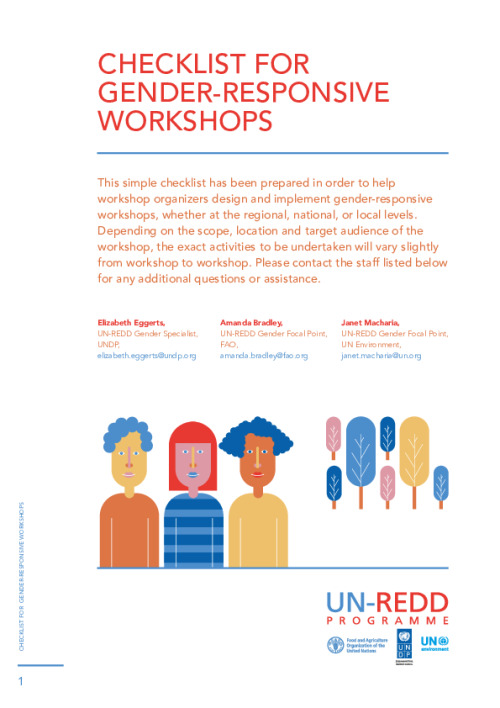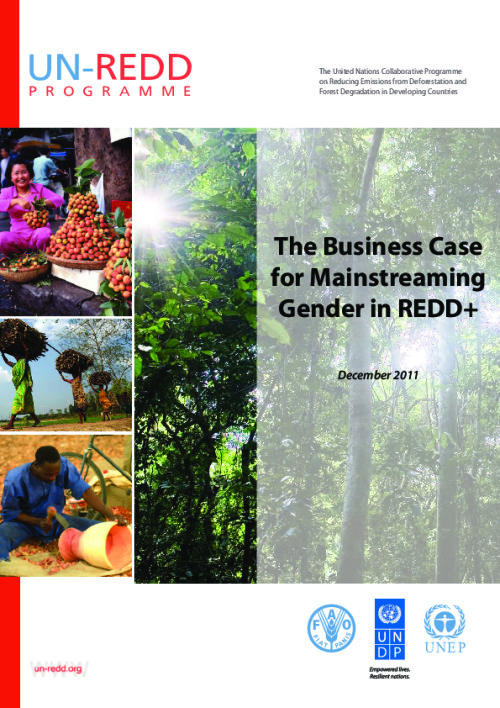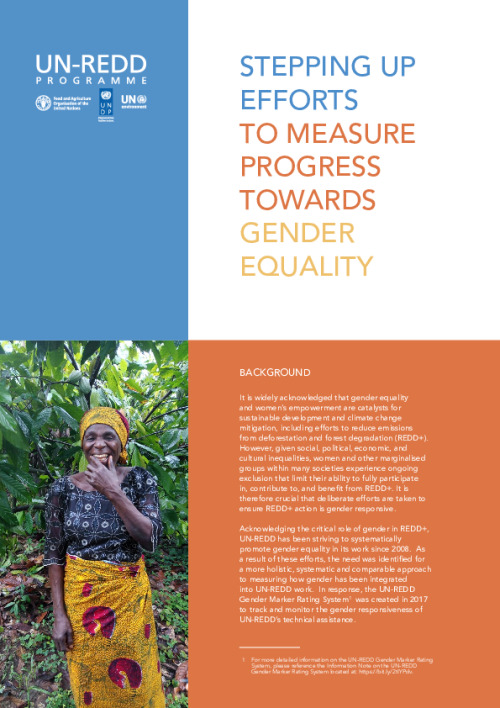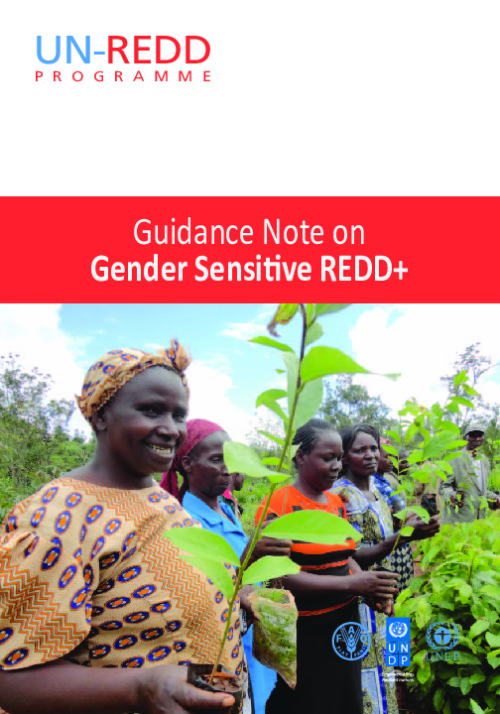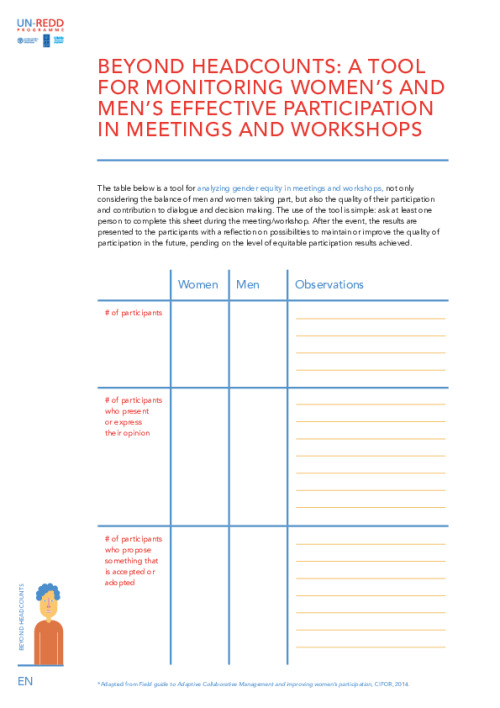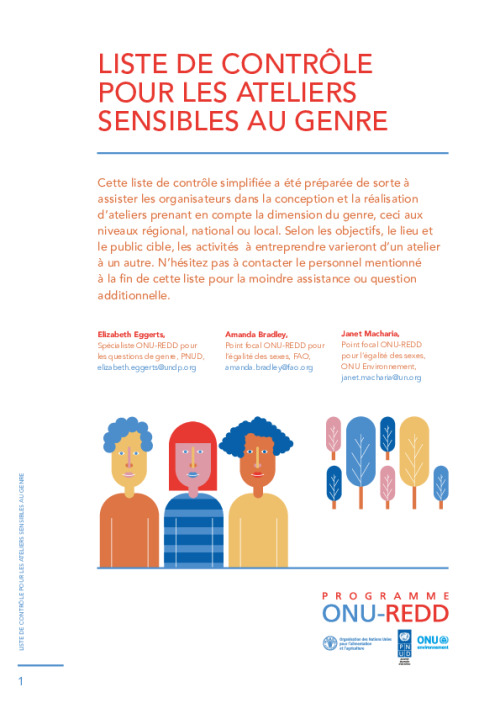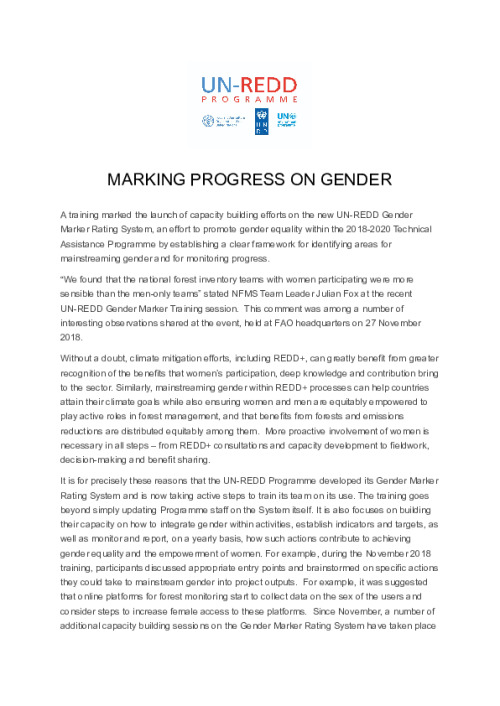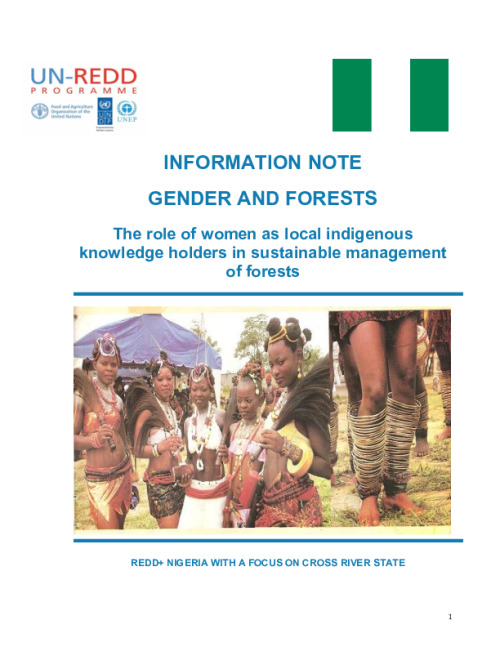How does UN-REDD work with gender equality?
Acknowledging the crucial role of gender in sustainable development, active steps have been taken within the UN-REDD Programme to systematically promote gender equality and a human rights-based approach in its work since it was launched in 2008.
To catalyze and promote a more integrated approach to gender, UN-REDD has placed gender as a crucial cross-cutting theme within strategic and reporting frameworks, across UN-REDD’s thematic areas and within its technical support at national, regional and global levels.
The programme supports UN-REDD partner countries to systematically integrate gender-responsive activities within the design, implementation and delivery of their REDD+ action, so that all stakeholders, including women, men and youth (and boys and girls, when relevant) can equitably and meaningfully engage, participate and benefit from national REDD+ processes and action.
A key best practice is the need to ensure that gender support and guidance is developed and validated using a bottom-up approach. Specific emphasis has been placed on promoting the active and equitable involvement of local and indigenous women, in order to have their knowledge inform national REDD+ action.
Assistance under the UN-REDD Programme has ranged from undertaking gender-responsive analyses and conducting awareness-raising and capacity-building on gender to promoting gender-responsive participation, monitoring and reporting. The Programme is also committed to sharing information on gender and REDD+ with development practitioners and partner countries.
In addition, a Gender Marker rating system has been introduced for UN-REDD’s technical assistance programme, which measures annually how and to what degree its outputs contribute to achieving gender equality and the empowerment of women. Such a system helps to more comprehensively track and monitor gender responsiveness in Programme actions and in global knowledge management to support countries.
